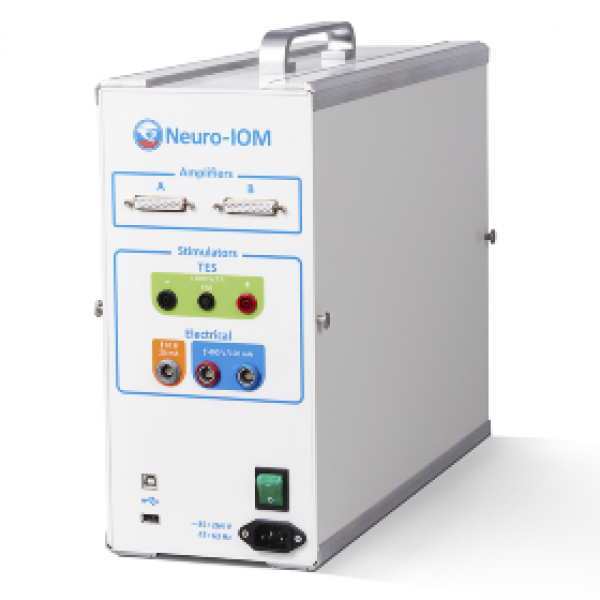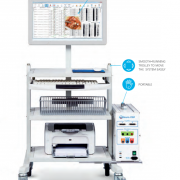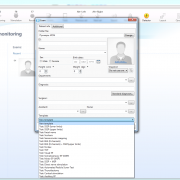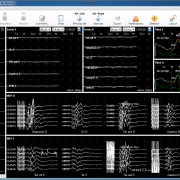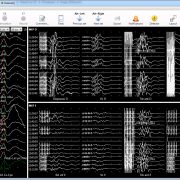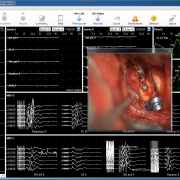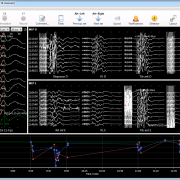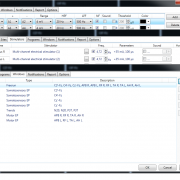Product Description
11 Modalities for Intraoperative Neurophysiological Monitoring
Main: free-run EMG, direct nerve stimulation including pedicle screw test, SSEP, MEP, EEG, AEP, VEP, ECoG, direct cortical stimulation and train-of-four (TOF) stimulation.
Optional: anesthesia depth monitoring
Motor evoked potentials (MEP) and somatosensory evoked potentials (SSEP) are recorded to control the integrity of motor and sensory pathways, electroencephalogram (EEG) is recorded to assess anesthesia depth, direct nerve stimulation is intended to monitor peripheral nerve integrity, and many other modalities (free-run EMG, AEP, VEP, TOF, etc.) are also used during IOM.
Reliable Multichannel Amplifier
The system is equipped with a reliable low-noise universal neurophysiological amplifier allowing high-quality acquisition of EMG, EEG and multimodal EPs. The system can be equipped with 8-, 16- and 32-channel amplifiers.
Stimulators and Acquisition Pods
Acquisition pods to connect recording electrodes
Low current stimulator pod
Electrical stimulator pods (for 1-4 channels and 5-8 channels)
Neuro-TES electronic switch
ES detector
Auditory-visual stimulator unit
All pods have 5-meter cables.
Transcranial Electrical Stimulator (TES)
Transcranial electrical stimulator is intended for stimulation of motor cortex in order to elicit motor evoked potentials in peripheral muscles. MEPs allow monitoring the integrity of motor pathways. Response acquisition is performed using one or several channels of built-in multichannel amplifier.
Neuro-IOM.NET Software
Neuro-IOM.NET software is specially developed for intraoperative neurophysiplogical monitoring and supplied with a set of default templates for various types of surgeries.
Neuro-IOM.NET allows:
creating new templates for different types of surgeries;
displaying simultaneous traces of different modalities on the screen (SSEP, MEP, free-run EMG, etc.);
switching the trace review modes and test window layouts;
displaying video from two video cameras on the screen. The video is recorded and synchronized with other data;
generating automatically the editable monitoring report in .rtf or Word (including traces, text comments, video, etc.);
real-time remote monitoring of results.


